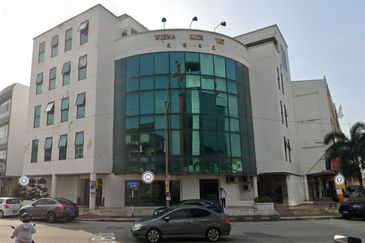
- “Malaysian consumers enjoy the lowest domestic electricity tariffs in Asean, not purely because of efficiency, in our view, but through artificial means of subsidy and price controls. These distortions send the wrong price signals, which may eventually discourage innovation and efficient use, as well as prevent changes in consumer behaviour.”
KUALA LUMPUR (April 5): Domestic electricity users with high volume usage may be the next target for higher tariffs, following upward adjustments for large corporations in January, according to CGS-CIMB Research.
In view of coal and gas prices peaking in late-2022, CGS-CIMB Research economist Nazmi Idrus estimated the subsidy bill for the government in managing higher power rates will balloon to RM6.8 billion in 2023, from an estimated RM6 billion in 2022.
In an attempt at subsidy rationalisation, the government started off by targeting non-domestic users or medium and high-voltage commercial and industrial users by removing the subsidies, resulting in a higher tariff surcharge of 20 sen per kilowatt hour (kWh) starting January, from 3.7 sen per kWh previously.
By Putrajaya's calculations, the actual amount that should be applied to domestic consumers given the prevailing input costs, is a 27 sen/kWh surcharge, although they still enjoy a two sen/kWh discount until the first half of 2023.
"13.1% of the subsidy is enjoyed by domestic high-volume customers, even though they account for just a 9% share of the total number of users. Similarly, non-SMEs [small and medium enterprises] that account for a mere 4% share of users enjoy up to 43.3% of the subsidies given, eclipsing every other category.
"In total, both high-volume domestic users and non-SMEs segments account for over 56% of the total subsidies given by the government despite these segments having a greater ability to absorb the cost increases themselves," said Nazmi.
As such, the economist thinks the next option for the government is to target high-volume domestic users.
"Timing-wise, an announcement can be as early as the 2H2023 ICPT [imbalance cost pass-through] review period in late-Jun 23, in our view," he noted.
Removing electricity tariffs for domestic users will have visible but limited impact on CPI growth
“Based on our estimates, a tariff revision will have a visible but limited impact on CPI [consumer price index], adding between 20bp [basis point] and 60bp to 2023 CPI growth,” said Nazmi.
Assuming the government only targets a high volume of domestic users (above 600/kWh) by imposing a tariff rate close to ICPT input cost, while lower volume users (less than 600/kWh) continue to enjoy the subsidy with a two sen/kWh rebate, this will cause electricity CPI to increase 8%.
Under this scenario, Nazmi said headline CPI growth is expected to increase 20bp each for 2023 and 2024, with 2023’s CPI forecasted at 3.2% year-on-year and (y-o-y) and 2.5% y-o-y in 2024, respectively.
Another scenario is a more drastic one where he assumed a complete removal of the electricity subsidy to reflect the actual input costs. This is expected to drive up the CPI for 2023 by 60bp to an estimated 3.6% y-o-y and for 2024 to 2.9%.
“Based on the findings, the impact adjustments, even at their fullest extent, do not appear to be extremely significant, as annual inflation growth may only increase by 60bp, at most. At a more reasonable assumption of partial adjustment, the impact to headline CPI is even milder.
“This builds the argument that the government may pursue this avenue as part of its subsidy rationalisation plan,” said Nazmi.
Nonetheless, over the longer term, Nazmi thinks the electricity subsidy even for the lower volume users should eventually be removed.
“Malaysian consumers enjoy the lowest domestic electricity tariffs in Asean, not purely because of efficiency, in our view, but through artificial means of subsidy and price controls. These distortions send the wrong price signals, which may eventually discourage innovation and efficient use, as well as prevent changes in consumer behaviour,” he observed.
TOP PICKS BY EDGEPROP

Kawasan Perindustrian Pasir Gudang
Pasir Gudang, Johor

Jalan Trus, Bandar Johor Bahru
Johor Bahru, Johor

Kawasan Perindustrian Rembia
Alor Gajah, Melaka

Gateway 16, Bandar Bukit Raja
Bandar Bukit Raja, Selangor

Bandar Botanic
Bandar Botanic/Bandar Bukit Tinggi, Selangor




















